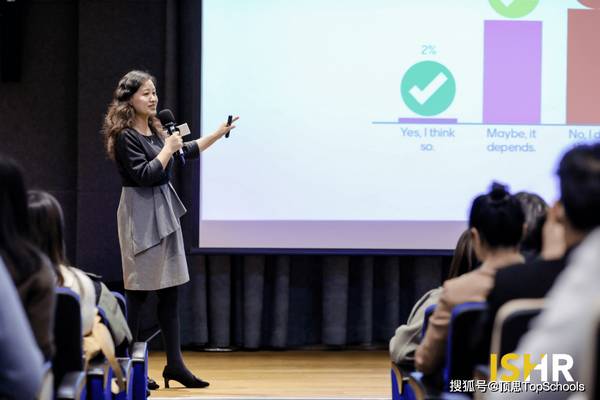- A+
??2021年云南贵州高考英语选用一年两考(别离是2021年9月和2021年6月)方针。
云南省2021年一般高级学校招生初度英语类别听力考试和口语查验于2021年9月26-27日举办。
一、听力试题:
第一节
听下面5段对话。每段对话后有一个小题,从题中所给的A、B、C三个选项中选出最佳选项,并标在试卷的相应方位。听完每段对话后,你都有10秒钟的时刻来答复有关小题和阅览下一小题。每段对话仅读一遍。
1. Why does Jane become thinner?
A. She has been on a diet.
B. She has had an illness.
C. She has exercised a lot.
2. Where are the speakers?
A. In a library.
B. In a bookshop.
C. In a classroom.
3. What time does the bus usually arrive?
A. 7:30.
B. 7:35.
C. 7:40.
4. What is the probable relationship between the speakers?
A. Mother and son.
B. Husband and wife.
C. Teacher and student.
5. What are the speakers talking 
about?
A. Kate’s friends.
B. Today’s weather.
C. Jim’s weekend.
第二节
听下面5段对话或独白。每段对话或独白后有2至4个小题,从题中所给的A、B、C三个选项中选出最佳选项,并标在试卷的相应方位。听每段对话或独白前,你将有5秒钟的时刻阅览各个小题;听完后,各小题将给出5秒钟的作答时刻。每段对话或独白读两遍。
听下面一段对话,答复第6和第7题。
6. What does the woman do?
A.?She’s a doctor.
B.?She’s a waitress.
C.?She’s a teacher.
7. What is the man going to do?
A.?Give up his unhealthy diet.
B.?Have a further examination.
C.?Go on sick leave from work.
听下面一段对话,答复第8至第10题。
8. How long has Peter been in London?
A.?One day.
B.?Three days.
C.?About a week.
9. What does Peter say about the hotel?
A.?It’s not large but warm.
B.?It’s not so good but cheap.
C.?It’s not convenient but quiet.
10. What is Peter going to do next?
A.?Get something to eat.
B.?Ask for another room.
C.?Have the heating fixed.
听下面一段对话,答复第11至第13题。
11. Who is Nat King Cole?
A.?A pop singer.
B.?A?researcher.
C.?A bus driver.
12. What did the researchers study about bus drivers?
A.?Their health problems.
B.?Their facial expressions.
C.?Their working condition.
13. What is proved harmful to the bus drivers’?health?
A.?Working overtime.
B.?Bad thoughts.
C.?Forced smiles.
听下面一段对话,答复第14至第17题。
14. What has Professor Brown been busy with these days?
A.?Training teachers.
B.?Teaching students.
C.?Writing textbooks.
15. What does Professor Brown think about what he does?
A.?It is enjoyable.
B.?It is hard work.
C.?It is important.
16. At what age did Professor Brown start to learn music?
A.?Three.
B.?Six.
C.?Twelve.
17. What is Professor Brown good at in terms of music?
A.?Playing the piano.
B.?Writing words to songs.
C.?Remembering music pieces.
听下面一段独白,答复第18至第20题。
18. What is the speaker doing?
A.?Hosting a radio program.
B.?Conducting an interview.
C.?Reporting a piece of news.
19. Which country is the largest coal producer in the world?
A.?Australia.
B.?The US.
C.?China.
20. What do we know about coal-mining jobs in America?
A.?They’re boring.
B.?They’re dangerous.
C.?They’re poorly paid.
二、听力原文:
Text 1
M: Jane, are you on a diet? You look thinner than before.
W: Not exactly. The day after I began to diet, I got sick. I stayed in the hospital for the last two weeks and lost five kilos.
Text 2
M: Hi. I need to check out this book.
W: Sure. May I have your card?
M: Okay.
W: Sorry, I’m afraid you have to return one of the five books you’ve already borrowed before you check this one out.
Text 3
M: What time is it, Mary? We’ve waited here for about ten minutes.
W: It’s 7:40 now.
M: Oh, our bus is late today.
W: Yes, it should have arrived five minutes ago.
Text 4
W: Bob, turn off the TV. It’s time for bed.
M: Most of my classmates say they go to bed after nine o’clock.
W: Never mind what time your friends go to bed. I say your bedtime is half past eight. And it’s 8:20 now.
Text 5
W: Hi Jim. Did you have a nice weekend?
M: Yes, Kate. It was great. I went camping with my friends in the Catskills.
W: Really? How was the weather there?
M: It was very nice.
Text 6
W: How long have you been having the pain?
M: I first felt it in November last year.
W: Well, you should have come in earlier. Have you changed your eating habits in any way?
M: No, not really.
W: Is there a certain type of food that would cause stronger pain than other types?
M: Hmm. Heavy foods like steak or cheese usually bring it on.
W: I see. What about if I touch here, does it hurt?
M: Ouch! It does hurt. What do you think it is?
W: I’m not sure. We need to take an X-ray to see if anything is wrong.
M: Okay.
Text 7
W: Hi Peter. Have you been in London long?
M: Hi Maggie. I got here last Friday. It’s about a week now.
W: I just arrived. What’s the hotel like?
M: It’s okay. Not perfect, but for this price, not bad.
W: Why? What’s the matter with it?
M: Well, the heating doesn’t always work. And it was freezing in here yesterday. Breakfast is very early in the morning. Today I overslept and missed it completely.?
W: You overslept? Why was that?
M: Well, there’s a man with a boy staying next door. They’ve been here for three days now, and the boy is really noisy. I didn’t get any sleep.
W: Oh no. Well, I don’t know what we can do about the breakfast or other guests. But why don’t you ask the hotel to look at the heating?
M: Hmm. Good idea. I’ll talk to them about it right now.
Text 8
W: Do you know Nat King Cole?
M: You mean the pop singer? Yeah. What about him?
W: In his song “Smile”,?he tells people to smile through heartbreak. But now, research suggests that false happiness may just make things worse.
M: Really? Tell me more about it.
W: Researchers took pictures of bus drivers and then looked into the expressions on their faces.
M: They did? What happened then?
W: After following the drivers closely, researchers found that the drivers had to force a smile at work. They felt so bad that they wanted to give up their jobs.
M: I never imagined it could be so serious. Why is that?
W: The report says when people try to hold back bad feelings,?it turns out that the feelings become even stronger and last longer.
M: Look at my face. Do I smile a real smile?
Text 9
W: Professor Brown, which do you prefer, writing or teacher training?
M: Well, I enjoy both very much. In fact, I wouldn’t want to give up either. These days most of my time is spent on writing. I go to the university just two half days a week to work with graduate students.
W: What plans do you have for the future?
M: Now that we have completed a textbook and its new CD program, we plan to develop more textbooks for other markets. People sometimes say to me, “You work too hard.” The truth is I enjoy what I do, and I don’t consider it to be work.
W: What do you like to do that’s not education related?
M: I like playing the piano. I’m fortunate to have been born with the ability to play the piano by ear. If I remember a music piece, I can play it. I’m not sure how I do it, but I’ve had that ability since the age of twelve. I took music lessons from the age of six. I also write music. Although I’m a language teacher, I can’t write words to songs. I have to turn to others for the words. Actually, I have more confidence in my book-writing ability than my song-writing ability.
Text 10
W:?Our listener question this week comes from Australia. Jeff Bailey has been listening to our program since 2004. And he wants to know more about coal-mining in?the United States. The United States produces about half of its electric power from coal. America is the second-largest producer of coal after China. Coal is mined in half the states, but Wyoming mines the most, followed by West Virginia, Kentucky, 
and Pennsylvania. The United States gets about two-thirds of its coal from surface mining rather than underground mining. Surface mining is the name for the different methods that are used to remove coal that is less than sixty meters underground. The United States has about 87,000 coal miners. The jobs pay well, especially for the poor areas where mines are often found. However, the jobs can also be dangerous. The 
government says more than 100,000 coal miners lost their lives in the past century.
三、答案
1-5?BABAC
6-10?ABCBC
11-15 ABCCA
16-20?BCACB
????
